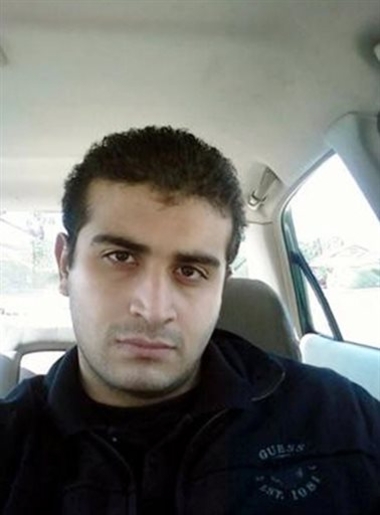FBI investigating Orlando killer as club regular who used gay dating apps

ORLANDO, Fla. (AP) — The FBI is investigating reports that Orlando gunman Omar Mateen had been a regular at the gay nightclub he attacked and had used gay dating apps, a U.S. official briefed on the case said Tuesday.
A number of possible explanations and motives for the bloodbath that left 49 victims dead have emerged, with Mateen professing allegiance to the Islamic State, his ex-wife saying he was mentally ill, and his father suggesting he was driven by hatred of gays.
The picture grew more complex as patrons of the Pulse came forward to say that they had seen the 29-year-old American-born Muslim there a number of times or that he had been using gay dating apps.
Jim Van Horn, 71, said Mateen was a regular at the club. "He was trying to pick up people. Men," Van Horn told The Associated Press. While acknowledging he didn't know Mateen well, Van Horn said: "I think it's possible that he was trying to deal with his inner demons, of trying to get rid of his anger of homosexuality."
The official who said the FBI is looking into those reports was not authorized to discuss the investigation publicly and spoke on condition of anonymity.
Wielding an AR-15 semi-automatic rifle and a handgun, Mateen opened fire at the club early Sunday in a three-hour shooting rampage and hostage siege that ended with a SWAT team killing him. It was the deadliest mass shooting in modern U.S. history. During the attack, he called 911 to profess allegiance to the Islamic State group.
President Barack Obama will visit Orlando on Thursday to pay his respects to the victims and stand in solidarity with the community, the White House said.
The Orlando Sentinel and other news organizations quoted other regulars from Pulse as saying they, too, had seen Mateen at the club repeatedly.
"Sometimes he would go over in the corner and sit and drink by himself, and other times he would get so drunk he was loud and belligerent," Ty Smith told the Sentinel. He said he saw Mateen inside at least a dozen times.
On Monday, the White House and the FBI said Mateen appears to be a "homegrown" extremist who had expressed support not just for the Islamic State, but for other radical groups that are its enemies.
"So far, we see no indication that this was a plot directed from outside the United States, and we see no indication that he was part of any kind of network," FBI Director James Comey said Monday. He said Mateen was clearly "radicalized," at least in part via the internet.
On Monday night, about a mile from Pulse in downtown Orlando, thousands gathered for a vigil to support the victims and survivors. The names of the dead were read aloud. It was held on the lawn of Orlando's main performing arts venue, where mourners created a memorial of flowers, candles and notes for the victims.
Many said they felt compelled to attend because of the role Pulse played in their lives.
"It was a place that a young 20-year-old who wasn't openly gay felt safe for the first time," said Cathleen Daus, now 36, who worked at Pulse in her 20s. "Pulse gave me confidence, made me realize I was normal and so much like everyone else."
Some, including Jason Primar, who lost two friends in the massacre, released balloons that floated high above the downtown skyscrapers.
Primar went to Pulse at 2 a.m. Sunday, hoping for a good time with friends. When gunfijre erupted, "I felt like I was over in Iraq," he said. He called his two friends inside; they never answered. He later discovered they died.
Comey said the FBI also was trying to determine whether Mateen had recently scouted Disney World as a potential target, as reported by People.com, which cited an unidentified federal law enforcement source.
"We're still working through that," Comey said.
He defended the bureau's handling of Mateen during two previous investigations in 2013 and 2014 into possible terrorist ties. As for whether there was anything the FBI should have done differently, "so far, the honest answer is, I don't think so," Comey said.
Mateen was added to a terror watch list in 2013 when he was investigated, but was taken off it soon after the matter was closed, according to Comey. People who are in that database are not automatically barred from buying guns. Mateen purchased his weapons in June, long after his removal from the list.
More details of the massacre emerged on Monday, with Orlando Police Chief John Mina saying Mateen was "cool and calm" during phone calls with negotiators. But Mina said he decided to send the SWAT team in and bash through a wall after Mateen holed up with hostages in a bathroom and talked about bombs and an explosive vest.
"We knew there would be an imminent loss of life," Mina said. As it turned out, Mateen had no explosives with him.
JASON DEAREN, Associated Press
TERRANCE HARRIS, Associated Press
Copyright 2016 The Associated Press. All rights reserved. This material may not be published, broadcast, rewritten or redistributed.
The Gayly - 6/14/2016 @ 9:31 a.m. CDT





